Universal games have the power to include all toddlers and educators in shared moments of joy and play.
- Versions of the same games are played across cultures and Countries in the world; they are often simple and many times nonverbal. Hide & Seek and Peek-a-Boo are examples of these games. Their simplicity allow toddlers to engage in these games easily as they might be already familiar with them (played them at home and with their families). These games are also familiar to educators from a variety of cultural and linguistic backgrounds.
- Focusing on universal games offered educators the opportunity to delight with the toddlers, become attuned to their cues, interests and behaviours while playing. The educators further extended these games by working with the toddlers to invent and create their own games.
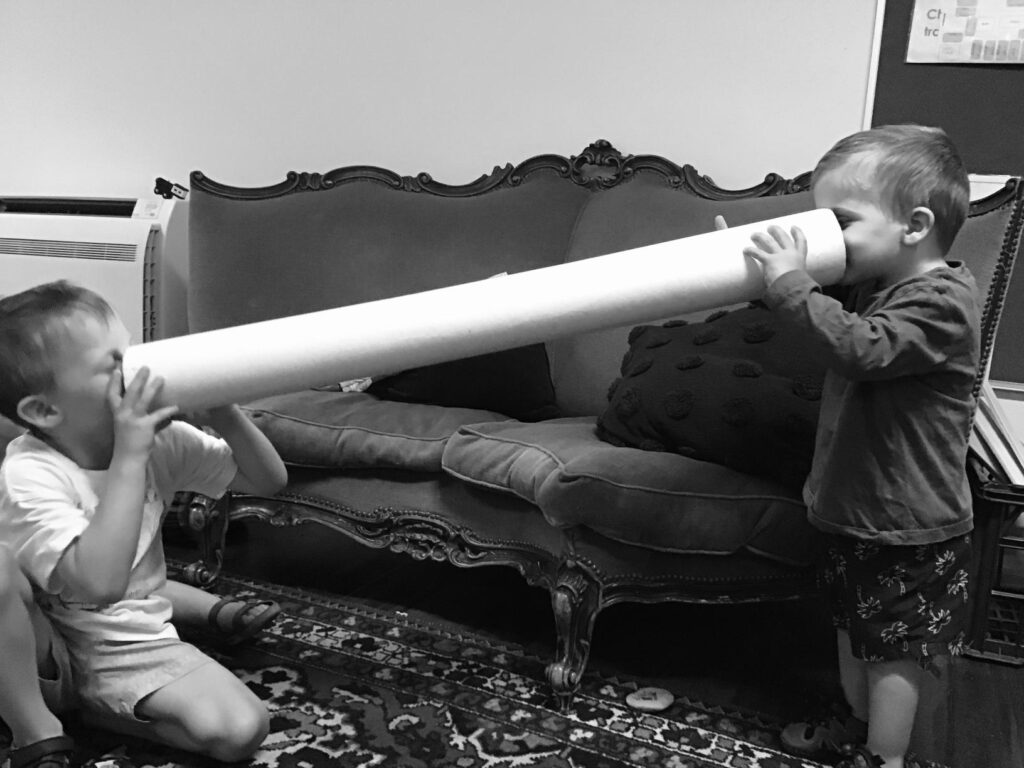



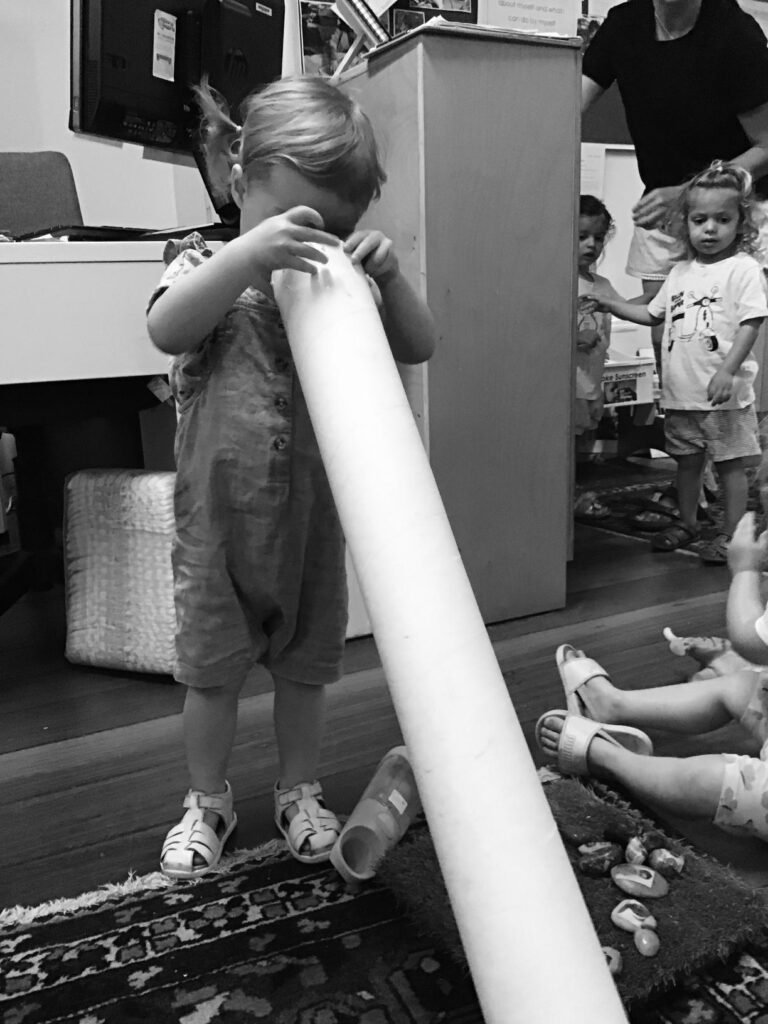

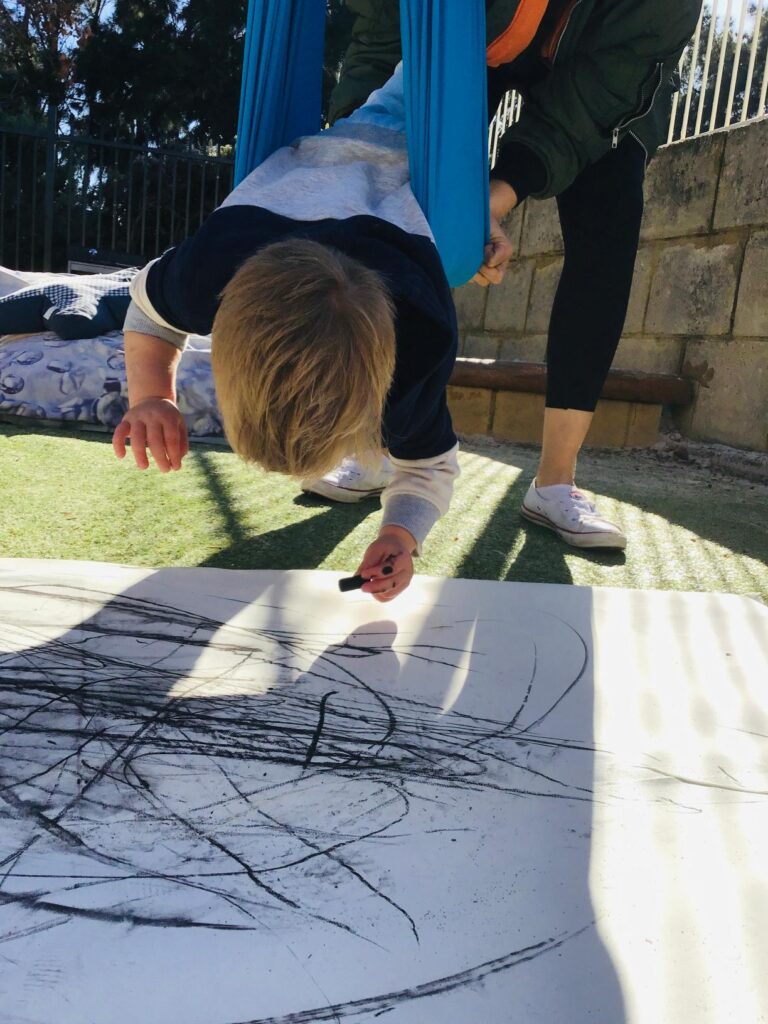

A focus on PLAY supported educators to become playful themselves during different moments of the day.
- Educators explored becoming playful with the toddlers in many spaces and moments of their routine such as transitions, mealtimes and outdoor spaces. Some transitions and moments of the day became less stressful and more playful. Educators learned that they can be both playful and uphold agreements and expectations in a routine or environment at the same time. One does not exclude the other.
- Educators expressed a feeling of “Letting go” of their inhibitions during play with toddlers.
- Educators shared how toddlers constantly reminded them of the ‘now-ness’ of the moment and the ability to lean into joy with one another. Toddlers can be teachers too.
“( This research ) permitted more educators to engage in play, ‘letting go’ of their inhibitions.”
Educator from a SOEL Toddlers Room
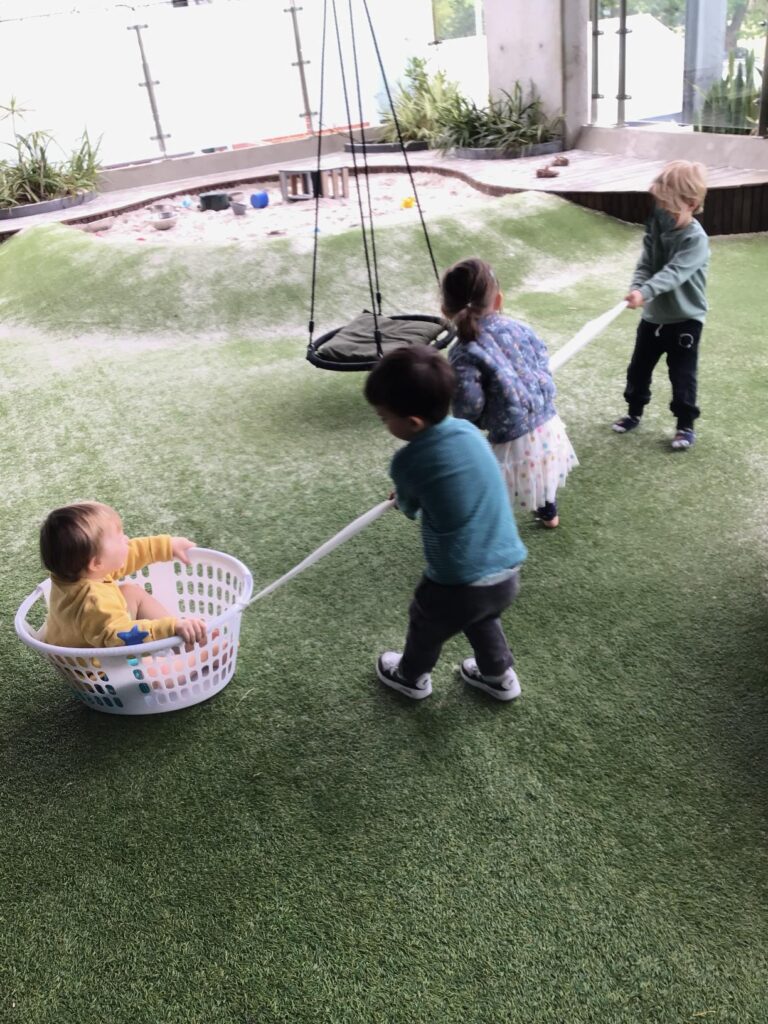

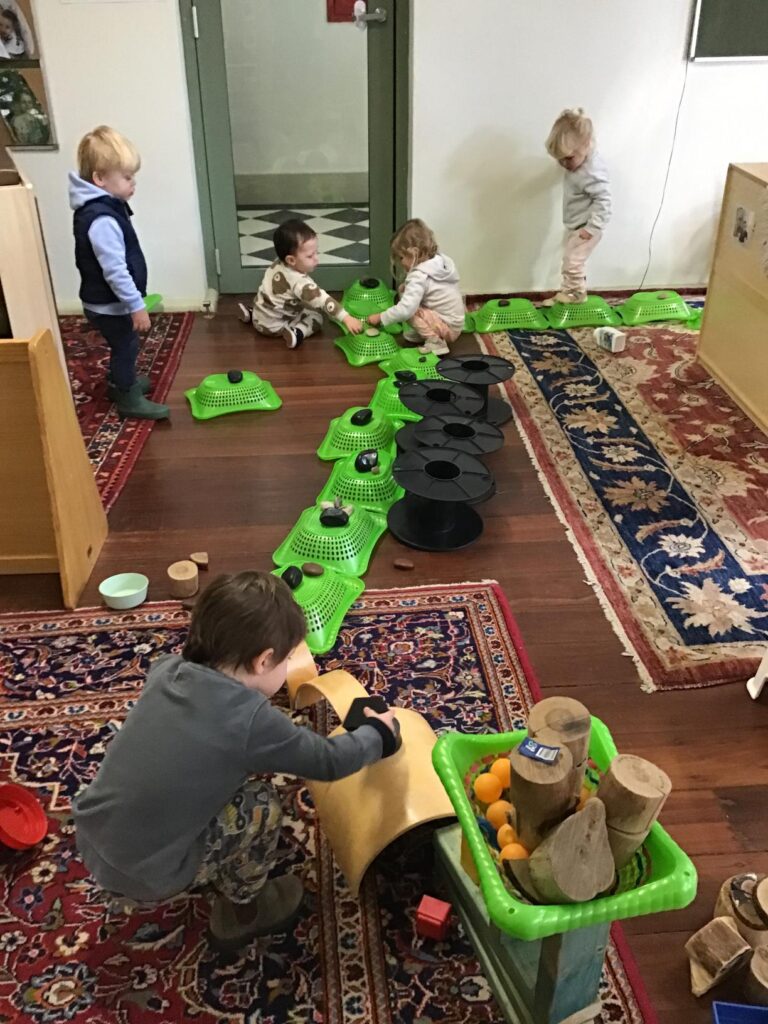

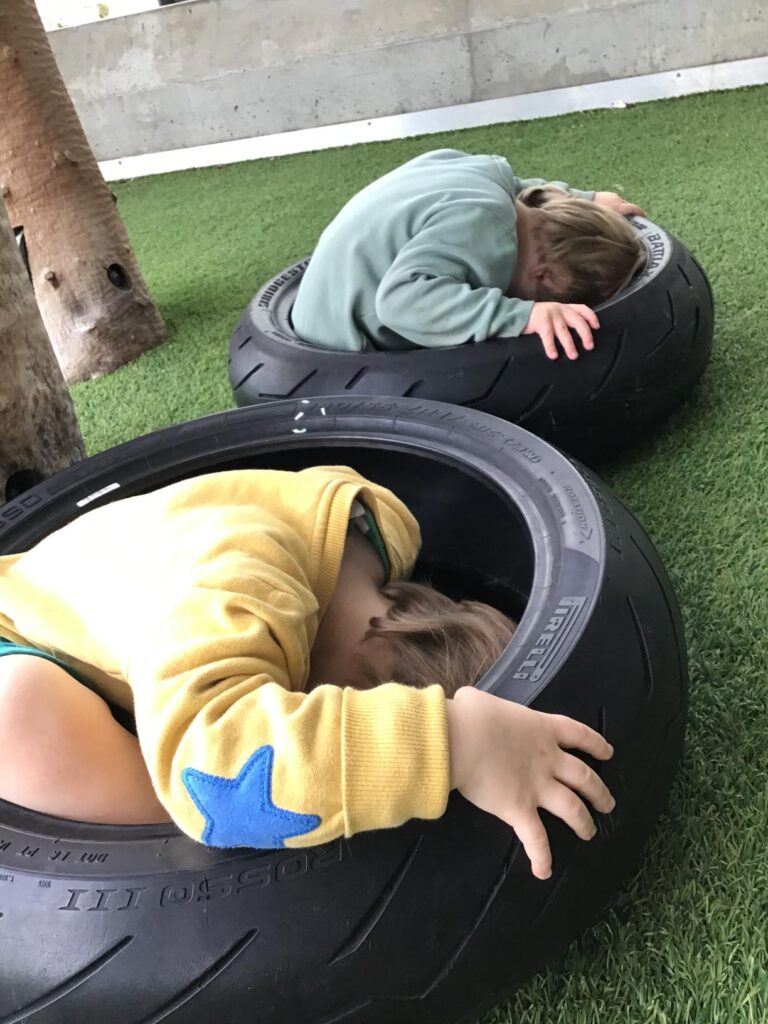

In PLAY, toddlers learn about themselves and others.
- Educators learned that during play, toddlers begin to make connections and build relationships with each other. Educators observed toddlers building leadership skills and caring and confident dispositions during play by creating a sense of fun for other toddlers, inviting others to play and mentoring.
- Educators reflected that toddlers are excited to share what they know with younger toddlers. This was observed during mentoring opportunities between the toddler and babies in each centre.
- By noticing and observing play, educators identified the intentional but subtle nonverbal cues in toddlers as well as bids for connection between them such as handholding, pointing, gesturing etc. Educators also noticed intentional larger gestures as bids for connection such as such as mimicking, laughing, falling or pretending to fall.
- By closely observing play, educators noticed how groups of toddlers can develop a shared sense of humour
“Toddlers were constantly reminding us of the ‘now-ness’ of the moment”
Educator from a SOEL Toddler Room
During PLAY, educators have learned that their role consists of leaning in and, at other times, leaning out of play.
- Educators began to explore the importance of letting toddlers ‘be’, observing them, and letting them lead the play.
- Educators learned that play doesn’t have to be fast and full of energy. Delighting in play can be quiet and subtle too.
“Educators can support the child(ren) in their play by being a ‘bystander/observer’ not just a participant”
Educator from a SOEL Toddler Room
PLAY resources can include real objects, loose parts, and art mediums.
- Educators found ways of engaging toddlers in play for longer periods by understanding toddler stages of development and attention spans. Educators learned that introducing play materials slowly, one at a time encourages persistence and curiosity.
SOEL Network meetings have provided an opportunity for SOEL educators to engage in research to build a community of learners by sharing celebrations, challenges, and ideas throughout the year.
Conclusion
We would like to thank the children, families and educators in our Babies and Toddler Programmes – Kondil, Wandoo, Bibool, Wonnil, Picasso, Bradshaw, Boyd, Streeton, WhitleyBarker, Bagot, Townsend, Tillo, Woulies, Quolls, Poole, Tonkin, Cooke, Bickley, Baldwin, Talbot and Throssel.
